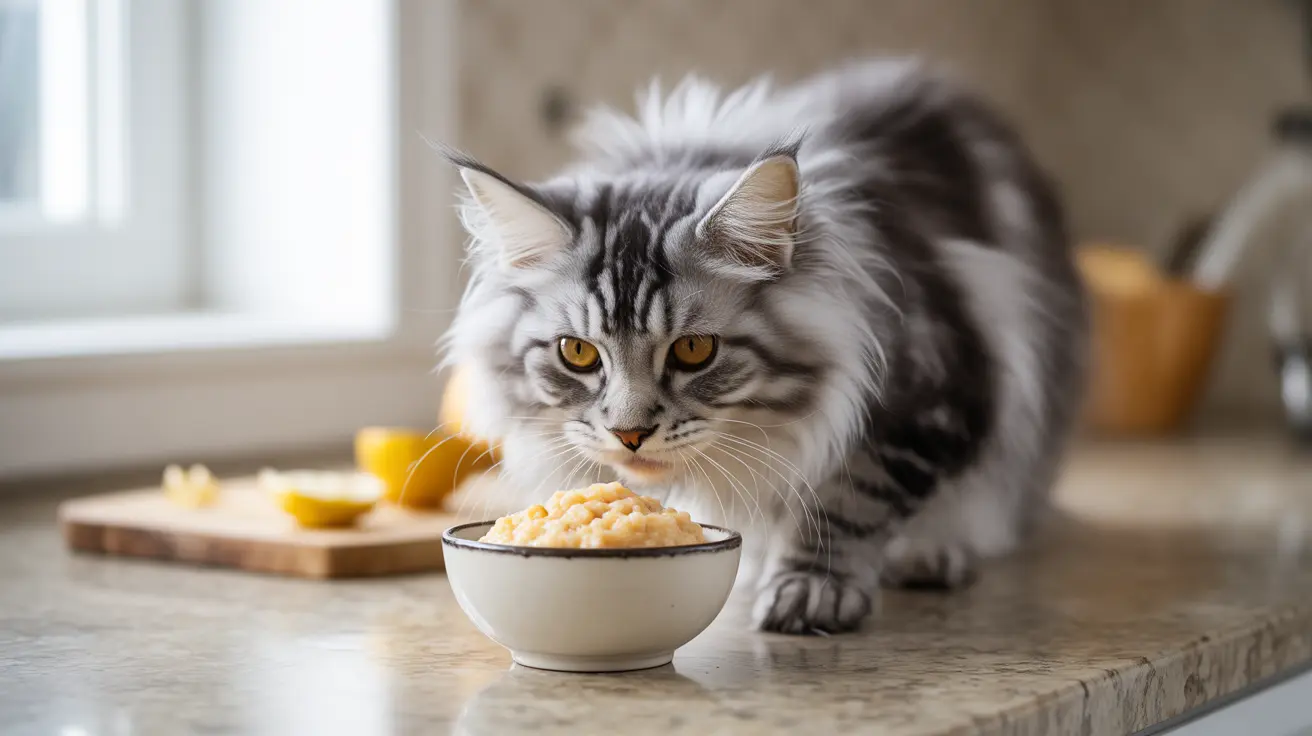Understanding Grits and Their Impact on Cats
Grits are a popular breakfast dish made from ground corn boiled in water or milk. While humans might enjoy this hearty meal, cats' digestive systems are designed very differently from ours. As obligate carnivores, cats require a diet primarily consisting of animal-based proteins, making grits a questionable addition to their meal plan.
The Safety of Plain Grits for Cats
Plain, unseasoned grits are not toxic to cats. However, their nutritional value for felines is minimal at best. Cats lack the necessary enzymes to properly digest large amounts of carbohydrates, which make up the majority of grits' composition.
The real concerns arise when grits contain common additives such as:
- Butter
- Salt
- Cheese
- Milk
- Sugar
Potential Health Risks and Concerns
When cats consume grits with additives, they may experience several health issues:
- Digestive upset and vomiting
- Diarrhea
- Dehydration
- Sodium poisoning (from salt)
- Obesity (from butter and cheese)
- Lactose intolerance reactions (from milk products)
Nutritional Considerations for Cats
Cats require specific nutrients that grits simply don't provide, including:
- Taurine
- Essential amino acids
- Animal-based proteins
- Specific vitamins and minerals
Feeding grits to your cat regularly could lead to nutritional deficiencies if they're replacing proper cat food in their diet.
Safe Feeding Guidelines
If you decide to offer grits to your cat, follow these important guidelines:
- Only serve plain, cooked grits without any additives
- Limit portions to tiny amounts (less than a teaspoon)
- Offer only occasionally as a treat
- Monitor your cat for any adverse reactions
- Never make grits a regular part of their diet
Better Alternatives to Grits
Instead of grits, consider these cat-appropriate treats:
- Commercial cat treats formulated for felines
- Small pieces of cooked, plain chicken or turkey
- Freeze-dried meat treats
- Specially formulated cat snacks
Frequently Asked Questions
Can cats safely eat plain, cooked grits as an occasional treat?
Yes, cats can safely consume small amounts of plain, cooked grits occasionally. However, they should never become a regular part of your cat's diet as they offer minimal nutritional value.
What health risks do added ingredients like butter, salt, or cheese in grits pose to cats?
Added ingredients can cause various health issues including obesity, digestive problems, sodium poisoning, and complications from lactose intolerance. These additives should always be avoided.
Why are grits not a nutritionally suitable regular food for cats?
As obligate carnivores, cats require animal-based proteins and specific nutrients like taurine that aren't present in grits. Grits are primarily carbohydrates, which cats' digestive systems aren't designed to process efficiently.
How should I monitor my cat if it accidentally eats grits with additives?
Watch for signs of digestive upset, including vomiting, diarrhea, lethargy, or unusual behavior. If you notice any concerning symptoms, contact your veterinarian immediately.
Are there safer alternative human foods or treats recommended for cats instead of grits?
Yes, better alternatives include small pieces of plain cooked meat, commercial cat treats, or freeze-dried meat treats specifically formulated for felines. Always consult with your veterinarian about appropriate treats for your cat.
Conclusion
While plain grits aren't toxic to cats, they're far from ideal as a treat or food option. Your cat's health and nutrition are best served by sticking to a diet formulated specifically for felines, with occasional vet-approved treats designed for their unique dietary needs.
Remember, when it comes to your cat's diet, it's always better to err on the side of caution and consult with your veterinarian before introducing any new foods, including grits.






